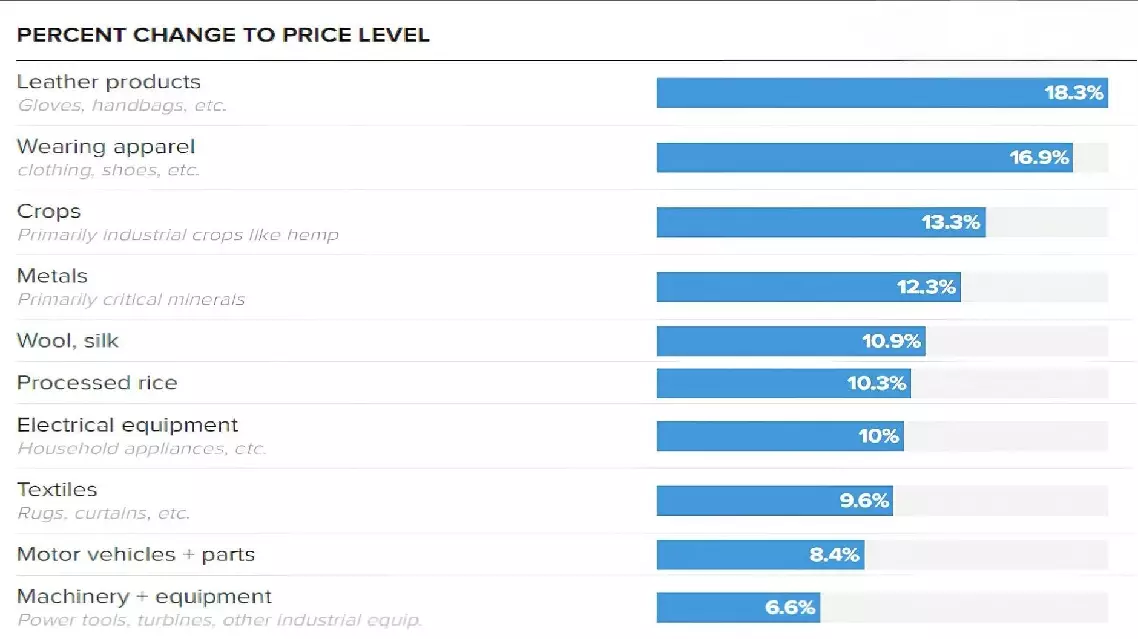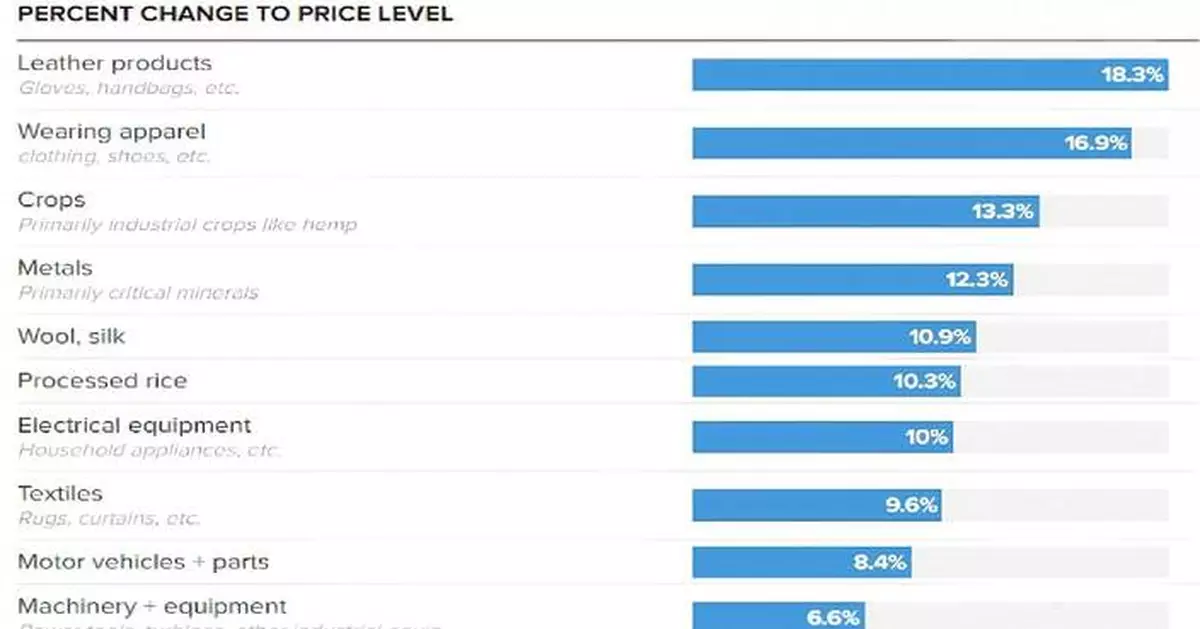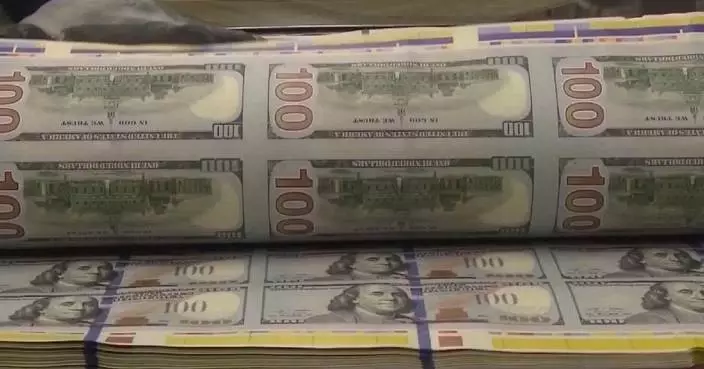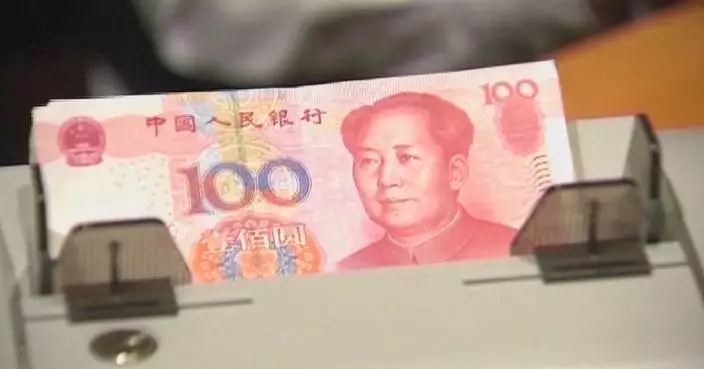The sweeping U.S. tariffs on imports are expected to increase household expenses, erode consumer spending power and worsen financial strain on American families, U.S. economic organizations and experts have warned.
The warning came following a series of moves adopted by the U.S. to impose tariffs on imports. It began with the executive order signed by U.S. President Donald Trump on April 2, which says that the U.S. will begin imposing a 10 percent "minimum baseline tariff" on all trade partners starting April 5. And then higher "reciprocal tariffs" will be levied on imports from certain partners, with these measures taking effect on April 9. Certain sectors, including vehicles, auto parts, steel and aluminum, are hit with even steeper 25-percent duties.
U.S. economists and business leaders have warned that the tariff increases will drive up prices, ultimately being passed on to consumers.
Concerned about soaring costs, some American consumers have already started stockpiling goods.
Trump aims to pressure other countries by imposing "reciprocal tariffs," which could come at a particularly high cost for U.S. consumers. With consumer confidence already on the decline, these tariffs are expected to further increase household expenses, erode consumer spending power, worsen financial strain, and add to the burden on American families, according to the economic organizations and experts.
The Yale University Budget Lab estimates that after the U.S. implements "reciprocal tariffs," if other countries retaliate, American households will face significant losses: an average of 1,300 U.S. dollars for low-income families, 2,100 U.S. dollars for middle-income families, and 5,400 U.S. dollars for high-income families.
According to analysis from the Yale University Budget Lab, the new tariff policies announced by the U.S. government could lead to a 2.3 percent increase in overall inflation this year, with food prices rising by 2.8 percent and car prices by 8.4 percent. This would result in an annual loss of 3,800 U.S. dollars for the average American household.
According to estimates from the U.S. think tank Tax Foundation, without considering retaliatory measures from other countries and regions, the U.S. "reciprocal tariff" policy will result in the following this year: Federal tax revenue will increase by 258.4 billion U.S. dollars, or 0.85 percent of the GDP, while after-tax income for U.S. individuals will decrease by an average of 1.9 percent. The average American household will face an additional 1,900 U.S. dollars in annual tax burdens.
For U.S. consumers, high tariffs could mean price hikes on everything from cars and home appliances to gasoline and groceries.
According to predictions from the Yale University Budget Lab, prices for products in categories such as leather goods, clothing, crops, metals and wool are expected to rise by more than 10 percent.
On Wednesday afternoon, renowned U.S. investor and billionaire Mark Cuban wrote on social media that it was time to start stockpiling goods.
"From toothpaste to soap, anything you can find storage space for, buy before they have to replenish inventory. Even if it's made in the USA, they will jack up the price and blame it on tariffs."
The U.S. policy of imposing a 25 percent tariff on imported cars officially took effect on April 3.
Many industry experts believe that the automobile industry, which heavily relies on global supply chains, cannot achieve the goal of "national exclusivity" through high tariffs.
Instead, it will make cars less affordable for more Americans, reduce the competitiveness of the U.S. auto industry, and increase the risk of a greater economic slowdown in the country.
Industry insiders believe that U.S. automakers will struggle to bear the cost pressures brought on by the 25 percent import tariff. According to estimates from JPMorgan, after the auto tariffs take effect, General Motors will be required to pay up to 13 billion U.S. dollars in import tariffs annually, while Ford will face around 4.5 billion U.S. dollars in import duties.
Some industry insiders said they believe that under the impact of tariffs, the U.S. auto industry may slide toward higher prices and lower quality.
A report from the Bank of America suggests that the auto tariffs could result in a decline of 3 million vehicle sales in the U.S., which is nearly one-fifth of last year's total sales.
Several U.S. financial institutions have analyzed the situation, warning that the tariff increases could potentially push the U.S. economy into a recession.
Mark Zandi, Chief Economist at Moody's Analytics, stated on social media on April 3 that if the U.S. fully and continuously implements its tariff policy, the country will suffer a severe recession -- even if it manages to avoid a full-blown depression.
On April 3, Citigroup released an investment strategy report stating that if the impact of U.S. tariffs cannot be eliminated through negotiations, the U.S. GDP growth for 2025 could be "wiped out."

Tariffs expected to raise household costs, weakening consumer spending, financial stability: reports






















































